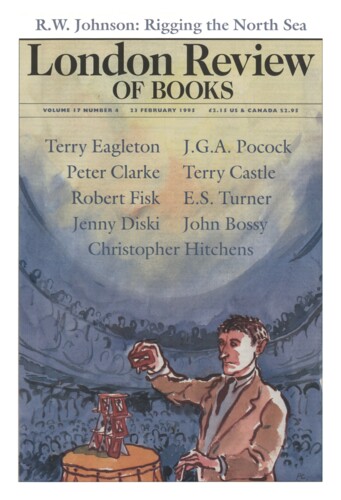No More Feudalism
Rosemary Horrox, 23 February 1995
The feudal system has usually been taken to entail a tenurial hierarchy in which land held of a superior carried certain obligations. In the resulting pyramid, only the man at the top could be said to enjoy full ownership of his land. The title of those lower down was limited by the rights reserved by those above them, so that they could not properly be said to ‘own’ land at all, only to ‘hold’ it from their immediate lord. Inevitably, given the powerful desire to hand on land to the next generation, such holdings tended to become hereditary, even where this had not been the original intention; but the residual rights of the overlord persisted, unless he were careless or profligate and let them be forgotten or actually gave them away. Medieval rulers thus derived their authority from their possession of rights over land, and their power was exercised most immediately over those who held land directly from them.

